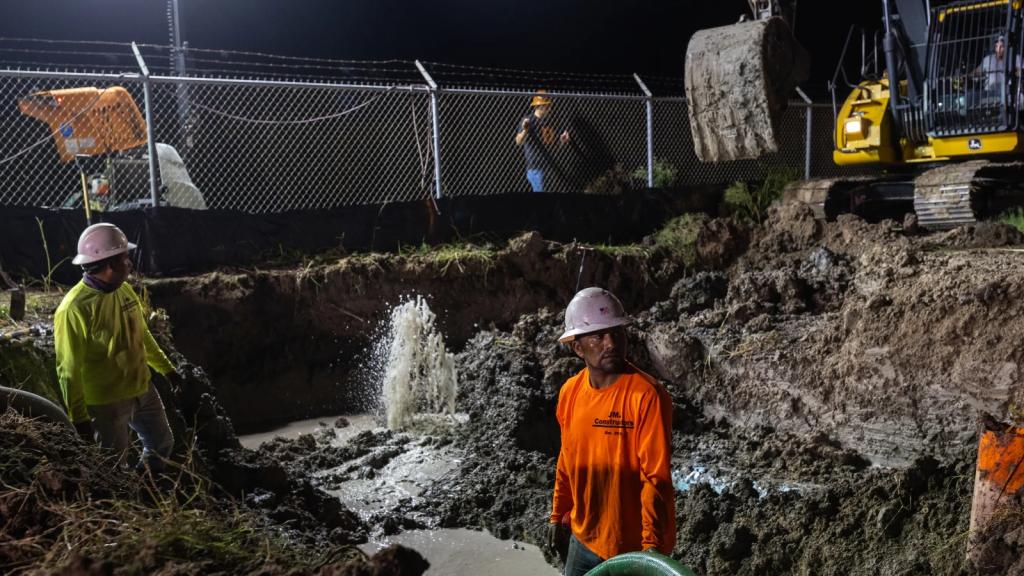J.H. Adler points us to a debate in the pages of Foreign Policy between Bjørn Lomborg and Carl Pope. Since I read the whole thing, here’s the highlight reel, so you don’t have to:
Pope: "The global environmental dilemma teems with both risks and opportunities."
Lomborg: "Yes, we have problems. But we have solved many more. Yes, we can solve those that remain, but not all at once. We need priorities."
P: "True, we need priorities. … Having priorities doesn’t always mean Sophie’s choice."
L: "I’m glad you agree that we need priorities. But I worry that your commitment is rhetorical."
P: "No, Bjørn, Sophie’s choice is avoidable."
L: "… You insist that there are no real trade-offs between the environment and prosperity. … It is not that environmental projects are not worthwhile. … Often, there are other, better projects that must come first."
P: "… You keep posing artificial choices… It is simply not the case that the world — or the United States — does only one thing at a time."
L: "Advocacy groups understandably want to focus on headline-grabbing issues … But when we emphasize some problems, we get less focus on others."
P: "Bjørn, you ignorant slut … "
Okay, that last one was an embellishment.
In the end, probably due to the compressed format, both guys come off as something of a self-parody: Lomborg the precocious adolescent convinced he’s come up with the killer idea and the grown-ups just can’t handle it, and Pope reciting fundraising talking points from Sierra Club mailers.
Lomborg’s shtick (if you couldn’t tell) is that with limited resources, the world’s decision makers must prioritize — while all kinds of projects and expenditures would be nice, dollars must be allocated to those that have maximum payoff. This was the idea behind the Copenhagen Consensus (CC) he organized.
Pope never really addresses the point directly, and it’s easy to see why: It’s obviously correct. One might say trivially correct.
A real rebuttal of Lomborg would have meant rehashing well-worn criticisms of the CC (not to mention well-worn criticisms of his famous book). The point is not that we don’t need priorities, but that the devil is in the details: It’s all in how you determine the priorities.
If I were Carl Pope, and I had the opportunity to issue a book-length response instead of a couple hundred words (and I was much smarter and more well-informed than I in fact am), I would have built a response to Lomborg out of the following two points:
One: Trying to build priorities out of statistics is inevitably an exercise in bias projection (and this is just what critics of the CC charged it with).
Global warming is the paradigm example of a "cost" the extent of which is substantially unknown. It may be that the effects of global warming will be so utterly devastating that any expenditure now to avoid them would be worth it; it may be that we’ll adapt just fine, and would be better off spending money on immediate life-saving projects like access to clean drinking water and stopping HIV/AIDS. Probably the truth is somewhere in the middle, but we simply don’t have enough hard data on the costs of global warming to peg that point precisely.
What is true of global warming is also true of other long-range, diffuse, complex problems. Among Lomborg-style experts, what gets measured gets done, so problems with more readily quantifiable effects will inevitably rise to the top of the priority list. A more honest approach certainly wouldn’t eschew a measure of hard-headed statistical analysis, but would acknowledge that in many cases, decisions come down to values, instincts, and will. We fool ourselves to think that politics — the art of living amongst others — can simply be set aside in favor of numbers.
In fact, Lomborg seems to inadvertently concede this point:
Moreover, just as money is a scarce resource, so too is political will. Given the world’s immense reluctance to enforce carbon taxes and trade liberalization, we should focus on getting the best one — trade — done first.
It’s a bit of a farce to include the amount of “political will” in your calculations (how is that measured, in will-o-watts?), as though you and the high-profile panel you convened on the subject are not involved in producing — or reducing — that political will. You will never catch me dragging Heisenberg’s uncertainty principle inappropriately into macro-level social discussions — I’m not that kind of guy — but here it is sure tempting. Political will changes with being observed and measured. Such will is difficult to define and more difficult to predict, but it is crucially involved in the process of setting priorities.
Two: Public policy decisions are not zero-sum games. We are not confronted with a finite pot of money to be allocated in a one-time spending spree. If I spend a dollar reducing mercury emissions, and as a result get $2 back in healthcare savings, well look, I have $2! I didn’t really "spend" a dollar so much as I "saved" or even "generated" a dollar. The point being that many — perhaps most — environmental problems are already costing us money in lost productivity, health, and lives. Dealing with those problems does not deplete but produces resources. This is in contrast to expenditures on, say, defense, where your best case scenario is preventing a harm that might of happened rather than reducing one that is happening. It is odd that Lomborg reserves so much spleen for environmental spending, which is relatively small in the grand scheme of things, and does not focus more on, say, the war on drugs, or a defense budget greater than the rest of the world’s combined. Again, there’s some bias projection going on under the guise of cool, calculating statistical analysis.
This could probably all be said much more coherently (and, ahem, briefly), but hell, it’s late, it’s only a blog, and sleep, I’m quite sure, is a wise investment.


